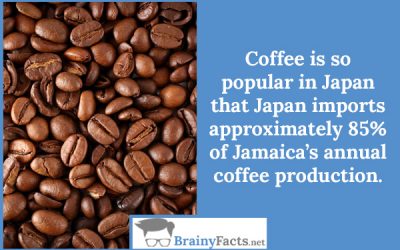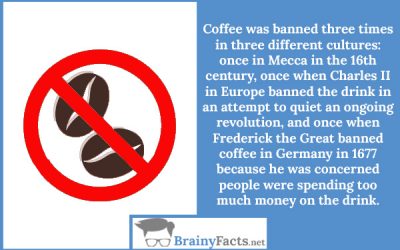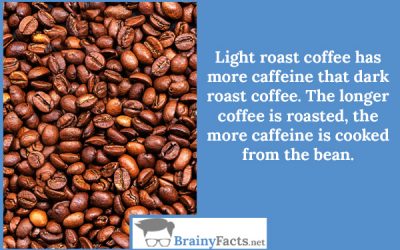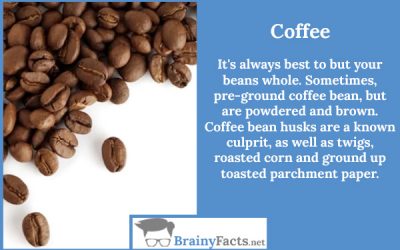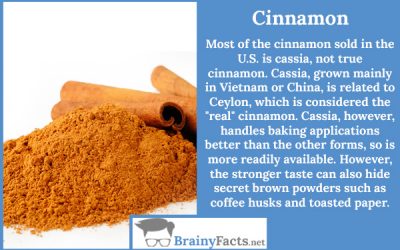15 Facts To Know About Your Daily Cup Of Coffee
Coffee
Coffee is so popular in Japan that Japan imports approximately 85% of Jamaica’s annual coffee production.
No coffee
Coffee was banned three times in three different cultures: once in Mecca in the 16th century, once when Charles II in Europe banned the drink in an attempt to quiet an ongoing revolution, and once when Frederick the Great banned coffee in Germany in 1677 because he was concerned people were spending too much money on the drink.
Roast coffee
Light roast coffee has more caffeine than dark roast coffee. The longer coffee is roasted, the more caffeine is cooked from the bean.
Stimulate
Coffee was originally regarded as a wonder drug in Yemen and Arabia and was taken only at the advice of a doctor. Many saw coffee as a brain tonic or as a way to stimulate religious visions.
Prevent damaging cells
Coffee contains antioxidants, which helps prevent free radicals from damaging cells. One study found that a typical servicing (approximately 9 oz) of coffee contains more antioxidants than a serving of grape juice, blueberries, raspberries, or oranges.
First coffeehouse in England
When the first coffeehouse opened in England in 1652, women were prohibited from entering, other than to serve men.
According to legend
According to legend, coffee was discovered in the 9th century when an Ethiopian goat herder named Khaldi noticed that his normally lethargic goats were more excitable after they had nibbled the red berries from an evergreen tree. Khaldi took the berries to a Muslim holy man, who turned the raw fruit of the coffee tree into the delicious beverage.
Main species
There are two main species of the coffee plant used to commercially produce coffee: 1) Coffee arabica, which originated in the Middle East, and 2) Coffea robusta, which originated in the Congo. Arabica trees produce the best quality coffee and are the most widely cultivated (3/4 of the world’s coffee), while Robusta beans are hardier, contain 40-50% more caffeine, and are used in many instant coffees.
Popular beverage
More than 500 billion cups of coffee are consumed each year, making coffee the world’s most popular beverage. It is also the world’s most traded commodity, after crude oil.
Daily coffee
Studies show that men who drink six or more cups of coffee daily decrease their risk of developing prostate cancer by 20%.
Prevent depression
A 2011 study showed that women who drink two to three cups of caffeinated coffee a day were 15% less likely to develop depression over a 10-year period than those who drank one cup of coffee or less per week.
First coffee house
The world’s first coffee house opened in 1475 in Constantinople (modern-day Istanbul).
Coffee
It’s always best to but your beans whole. Sometimes, pre-ground coffee bean, but are powdered and brown. Coffee bean husks are a known culprit, as well as twigs, roasted corn and ground up toasted parchment paper.
Cinnamon
Most of the cinnamon sold in the U.S. is cassia, not true cinnamon. Cassia, grown mainly in Vietnam or China, is related to Ceylon, which is considered the “real” cinnamon. Cassia, however, handles baking applications better than the other forms, so is more readily available. However, the stronger taste can also hide secret brown powders such as coffee husks and toasted paper.
Caffeine
More than 80% of the world’s population takes caffeine, in tea, coffee or cola, every day.

